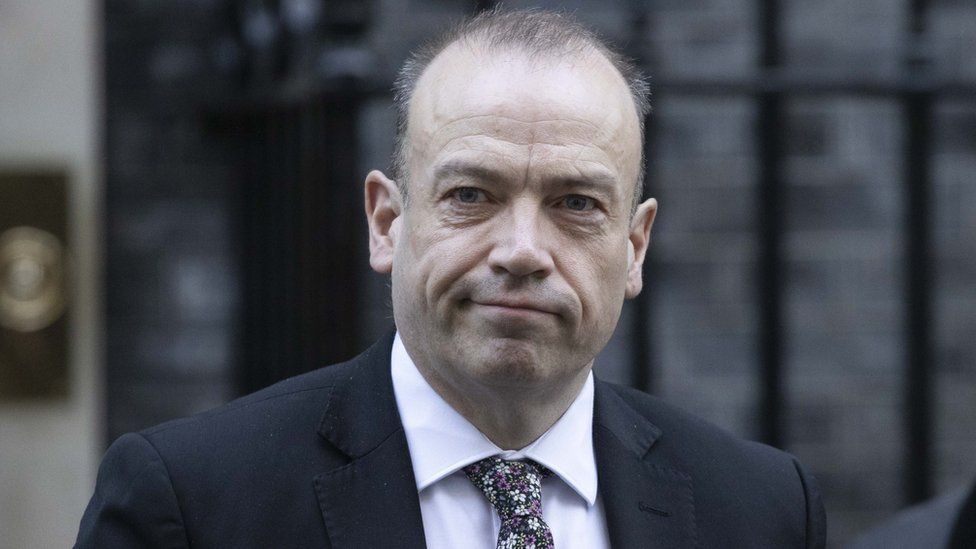ARTICLE AD BOX
 Image source, Anadolu Agency/Getty Images
Image source, Anadolu Agency/Getty Images
Chris Heaton-Harris made a statement about the budget in the House of Commons
By John Campbell
BBC News NI Economics & Business Editor
Chris Heaton-Harris has set a budget for Stormont departments in a written statement to the House of Commons.
The NI secretary said the Department of Education would need to make significant cuts to its "current spending trajectory".
Departments have been operating without proper budgets since the start of the financial year in April.
'Revenue-raising and reviews'
The Northern Ireland secretary said although education would receive a cash increase of £286m compared to last year's baseline, the department would need to take action to live within its budget.
"This will affect funding for high spend areas such as the Education Authority's block grant and the aggregated schools budget," Chris Heaton-Harirs said.
"As some costs are demand driven, this will have impacts.
"However, these are unavoidable given the scale of the overspend risk facing the department.
"The required action to curtail expenditure must be taken by all education spending areas in order to live within budget."
Mr Heaton-Harris warned if an executive did not return to set the 2023-24 budget then additional revenue raising was a possibility - that would mean things such as water charges.
"In the absence of an executive, the government's priorities for next year's budget will be to deliver a fair outcome for all taxpayers and citizens in Northern Ireland," he said.
"We will work to put Northern Ireland's finances on a sustainable long-term footing. That means we will need to consider wide-ranging options for revenue-raising and review all spending."
Image source, Reuters
Image caption,Chris Heaton-Harris says cuts to the Education Authority's block grant and the aggregated schools budget will be "unavoidable".
Departments had initially been able to operate without a formal budget because of what is known as the vote on account.
It is a legal mechanism which allows the spending of money in the first few months of a financial year before full budget legislation is passed.
It authorises spending equal to 45% of the allocation for the previous year.
In August, that 45% limit was being approached so a senior civil servant took control of Stormont's finances.
Neil Gibson, the senior official at the Department of Finance, has been using emergency powers to release cash to departments.
Section 59 of the Northern Ireland Act allows Mr Gibson to use money, equivalent to up to 95% of last year's budget, "for such services and purposes" as he directs.
If a Northern Ireland budget was not passed at Westminster, Mr Gibson would ultimately have to impose in-year cuts of least 5% across the public service.
The independent Fiscal Council said the Stormont overspend was mostly due to the unavoidable impact of inflation and pay pressures.
However, spending control arrangements in the absence of ministers seem to be making the situation worse, it added.
Earlier this month, the Northern Ireland Secretary said the findings of the fiscal council were "alarming" and he would be working with the Northern Ireland Civil Service to "work through the next steps needed on the NI budget".

 2 years ago
25
2 years ago
25








 English (US) ·
English (US) ·